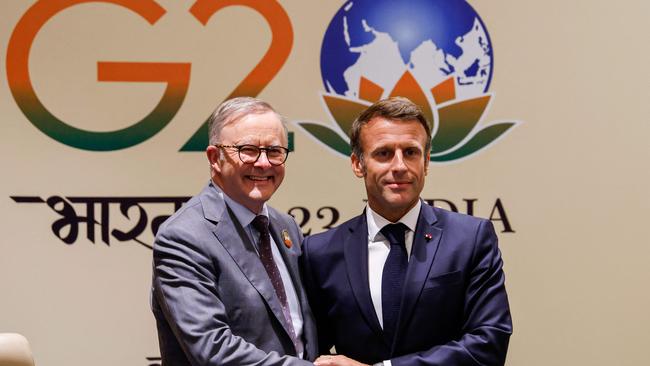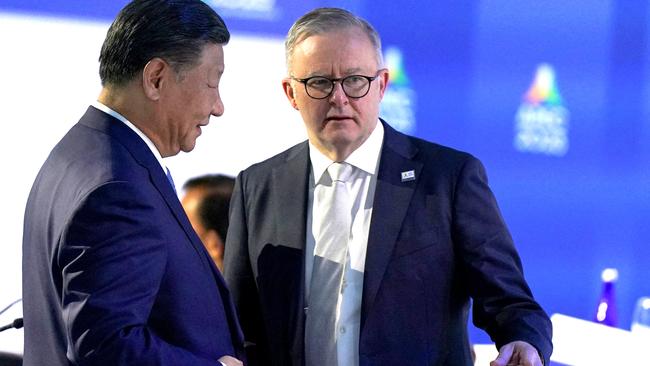Anthony Albanese’s overseas trips undermined by Donald Trump and cost-of-living crisis


With all eyes on Trump’s Mar-a-Lago estate and visit to the White House, APEC and G20 trade, climate change and clean-energy declarations will ultimately be symbolic rather than substantive.
While APEC and G20 leaders will promote the importance of free and open trade, world peace, fighting inequality and supporting climate change, Trump’s resurgence turns everything on its head.
The Prime Minister’s final overseas trip before next year’s election coincides with Labor falling behind in the polls, his personal support plummeting, and concerns that the cost-of-living crisis has become kryptonite for incumbent governments.
Albanese, who will miss some parliament sitting days during his unavoidable trip abroad, is confronting an increasing number of disgruntled voters who want lower interest rates, inflation to fall faster, and cheaper power and insurance bills.
For Australian households and small business owners, few of the APEC and G20 agenda items will resonate with them.
The leaders summits in Peru and Brazil include sessions covering trade and investment for inclusive and interconnected growth, innovation and digitalisation to promote the transition to a formal and global economy, sustainable growth for resilient development, sustainability, climate change and just transition, the fight against global hunger, poverty and inequalities, and global governance reform.
The waning influence of G7 Western nations over developing countries will again be on show at the G20 summit. The ambition of Western countries for bolder G20 climate change commitments has been repeatedly watered down, with China, India, Russia and other resource-rich and developing nations pushing back.

Across G20 nations, Brazil, Russia, India, China and South Africa have strengthened ties through the BRICS bloc. In recent years, the BRICS group has offered membership or partnership status to other G20 members and guest nations including Saudi Arabia, Egypt, Turkey, Malaysia, United Arab Emirates and Vietnam. Ahead of the G20 summit in Rio de Janeiro, BRICS nations last month again lobbied for boosted climate finance to support developing nations.
Trump has already made clear that he will for the second time withdraw from the Paris Agreement and the Green Climate Fund. After winning the 2022 election, the Albanese government reversed Scott Morrison’s decision to freeze Australia’s contributions to the GCF, which mandates financial support for developing countries including China and India – among the world’s biggest polluters – to reduce emissions.
After Labor relentlessly attacked Morrison in the lead-up to the 2021 UN Climate Change Conference in Glasgow, Albanese will end his term as Prime Minister having never attended a UN COP summit. Chris Bowen will again represent Australia at the COP29 summit in Baku.
With the government stalling its decision on a 2035 emissions reduction target, Labor’s likely successful bid to co-host the COP31 summit with Pacific nations in 2026 will not be the vote winner some ALP figures had hoped. Unlike the 2022 election, where Labor and the teals won city-based support on climate change, the issue has plummeted down the list of top voter priorities.
Facing the prospect of a US-China trade war, Xi Jinping will attend both summits. But the absence of Trump and Vladimir Putin minimises the impact of the APEC and G20 gatherings.
Albanese must attend the summits but has little to gain domestically by travelling halfway around the world to endorse declarations that a Trump administration threatens to up-end.



Anthony Albanese’s attendance at the APEC and G20 summits in South America will be overshadowed by the return of Donald Trump, and comes at the worst possible time for the Prime Minister.